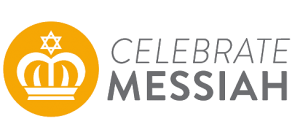A Superior Ministry and A Superior Covenant
Hebrews 8:8-12
Hebrews 8:8-12
Our last study focused on the superiority of the priesthood of the Messiah versus the Levitical priesthood. This study will focus on the superiority of His priestly ministry and ultimately the superiority of the New Covenant. The eighth chapter of Hebrews begins with a transitional statement, “Now the main point in what has been said is this…” Yeshua, Jesus our Messiah, is ministering in heaven, in the “true tabernacle, which the Lord pitched, not man.” He is ministering “at the right hand of the throne of the Majesty in the heavens.” He is a minister in the most holy place of all, the heavenly tabernacle. The earthly tabernacle seen in the Old Testament, for which Moses was given the instructions to build, is simply a copy of the heavenly one. The Levitical priests performed their priestly service in the copy; Yeshua the Messiah does His priestly service in the true heavenly tabernacle
In verses 3-6, the writer of Hebrews expands on the reality that Yeshua is ministering in the heavenly tabernacle on our behalf right now. Why would he need to make this emphasis to the readers? For one, there was still a real physical temple standing in Jerusalem where priests were offering gifts and sacrifices. And if Yeshua is also a priest, He must be doing the same thing, right? Not exactly. What Yeshua is doing in the heavenly tabernacle is vastly different than the duties of earthly priests. While the earthly, Levitical priests were offering sacrifices on the altar over and over again, Yeshua offered Himself as the perfect sacrifice once and for all on that horrific Roman cross. He is now seated at the right hand of the Father in heaven, signifying His work has been completed. Our Lord is “a living sacrifice” in heaven. He is not offering Himself over and over because that would be totally unnecessary. Furthermore, Yeshua could have never been an earthly priest under the Mosaic law because those priests had to be from the tribe of Levi. He would have never been allowed to serve in the earthly sanctuary, yet He now serves continually in the heavenly sanctuary. The writer concludes this section with the words, “But now He has obtained a more excellent ministry, by as much as He is also the mediator of a better covenant, which has been enacted on better promises.”
The “better covenant” the writer of Hebrews is referring to is the New Covenant, found in Jeremiah 31. In Hebrews 8:8-12 he quotes from Jeremiah 31:31-34, but prior to that quote he writes, “if that first covenant had been faultless there would have been no occasion sought for a second.” The word “faultless” in verse 7 does not refer to the Mosaic covenant itself, but rather the Israelites’ inability to keep it. He writes in verse 8, “For finding fault with them.” Israel failed in their responsibilities under the Mosaic covenant and the penalty for that failure, according to Deuteronomy 28, had come upon them. They were taken out of the Land into exile, the first temple was destroyed, and they were unable to produce righteousness acceptable to God.
The writer of Hebrews concludes by stating the New Covenant made the Mosaic covenant obsolete. The Greek word for “obsolete” is pa-lay-oh, which in the perfect tense means “old in the sense of uselessness and continues to be so.” The Mosaic covenant was never intended to produce justification apart from the sacrificial system, and it served as a means of pointing people to the coming Messiah (Galatians 3:24). It was a covenant that was temple-dependent. The tearing of the temple’s veil at the moment of Messiah’s death, and the destruction of the temple in 70 AD, is alluded to when he writes, “But whatever is becoming obsolete and growing old is ready to disappear.”
 https://www.celebratemessiah.com.au/wp-content/uploads/2017/09/human-2461232_1280.jpg
853
1280
Web Master
https://www.celebratemessiah.com.au/wp-content/uploads/2023/05/CM-Transparent-Logo-2-300x138-2.png
Web Master2017-09-14 14:09:362017-09-14 14:10:49Messianic Ministry Expanding in Russia and Ukraine
https://www.celebratemessiah.com.au/wp-content/uploads/2017/09/human-2461232_1280.jpg
853
1280
Web Master
https://www.celebratemessiah.com.au/wp-content/uploads/2023/05/CM-Transparent-Logo-2-300x138-2.png
Web Master2017-09-14 14:09:362017-09-14 14:10:49Messianic Ministry Expanding in Russia and Ukraine https://www.celebratemessiah.com.au/wp-content/uploads/2017/09/pexels-photo-401682.jpeg
856
1280
Web Master
https://www.celebratemessiah.com.au/wp-content/uploads/2023/05/CM-Transparent-Logo-2-300x138-2.png
Web Master2017-09-07 16:18:412017-09-14 14:00:42A Second Chance Introduction
https://www.celebratemessiah.com.au/wp-content/uploads/2017/09/pexels-photo-401682.jpeg
856
1280
Web Master
https://www.celebratemessiah.com.au/wp-content/uploads/2023/05/CM-Transparent-Logo-2-300x138-2.png
Web Master2017-09-07 16:18:412017-09-14 14:00:42A Second Chance Introduction https://www.celebratemessiah.com.au/wp-content/uploads/2017/09/joshua-newton-214848.jpg
800
1200
Web Master
https://www.celebratemessiah.com.au/wp-content/uploads/2023/05/CM-Transparent-Logo-2-300x138-2.png
Web Master2017-09-07 15:56:492017-09-07 16:00:07A Rabbi Meets a Doctor
https://www.celebratemessiah.com.au/wp-content/uploads/2017/09/joshua-newton-214848.jpg
800
1200
Web Master
https://www.celebratemessiah.com.au/wp-content/uploads/2023/05/CM-Transparent-Logo-2-300x138-2.png
Web Master2017-09-07 15:56:492017-09-07 16:00:07A Rabbi Meets a Doctor https://www.celebratemessiah.com.au/wp-content/uploads/2017/09/hannah-wei-84051.jpg
2994
4491
Web Master
https://www.celebratemessiah.com.au/wp-content/uploads/2023/05/CM-Transparent-Logo-2-300x138-2.png
Web Master2017-09-07 15:17:302017-09-12 11:38:37Unexpected Phone Call
https://www.celebratemessiah.com.au/wp-content/uploads/2017/09/hannah-wei-84051.jpg
2994
4491
Web Master
https://www.celebratemessiah.com.au/wp-content/uploads/2023/05/CM-Transparent-Logo-2-300x138-2.png
Web Master2017-09-07 15:17:302017-09-12 11:38:37Unexpected Phone CallSign up for Celebrate Messiah email newsletters to receive more information on our ministries, events, and outreach to the Jewish people around the world:

 Jewish Eschatology
Jewish Eschatology